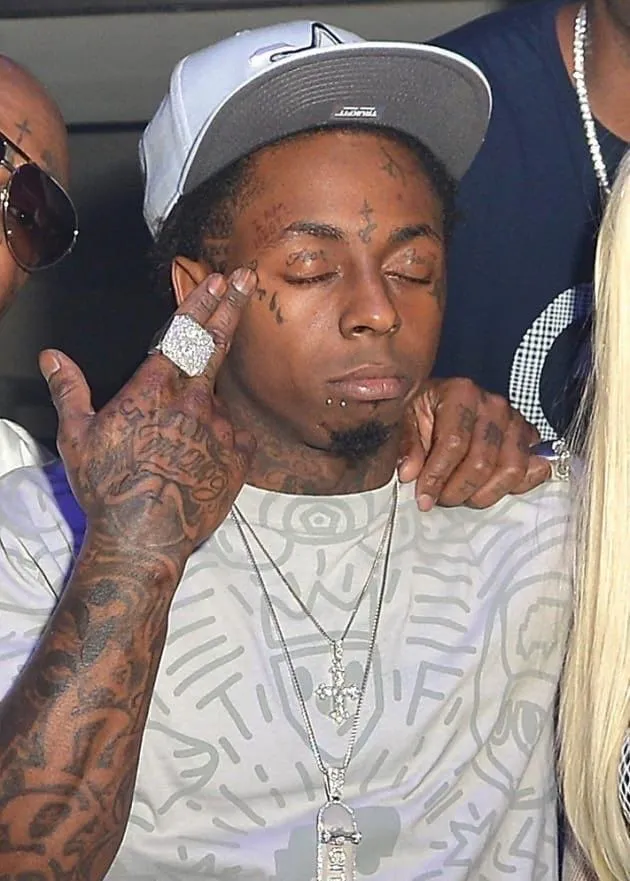

Rap King or Rock Flop? Rebirth Forced Lil Wayne’s Entire Career to Stop and… Explain!
When people mention Lil Wayne, the conversation almost always starts with Tha Carter. That series of albums built not only a catalog but an empire — a rap monument that cemented Wayne as a genius, a hitmaker, and at one point, the most dominant voice in hip hop. Yet, when you bring up Rebirth (2010), the entire mood changes. The room goes quiet, fans raise eyebrows, critics roll their eyes, and hardcore rap loyalists call it nothing short of a betrayal. What was supposed to be Lil Wayne’s bold experiment with rock became one of the most divisive, and to many, disastrous albums in mainstream hip hop history. To this day, Rebirth is remembered not as a triumph, but as a scar — the one moment where Wayne’s ambition seemed to overreach and stumble. But was it really that bad? Or was Wayne simply too far ahead of his time?
Why Tha Carter Made Wayne Untouchable
To understand why Rebirth was such a shock, you have to look back at Wayne’s prime. Between Tha Carter II (2005) and Tha Carter III (2008), he was virtually unstoppable. Every feature, every mixtape, every freestyle turned into a cultural moment. Critics praised his lyrical acrobatics, fans worshipped his charisma, and radio couldn’t escape his presence.

By 2008, with the release of Tha Carter III, Wayne was at the top of the rap world — selling over a million copies in its first week, an achievement nearly impossible in the digital era. With this dominance, Wayne had the freedom to try anything. And he did. That’s when Rebirth entered the picture.
The Birth of Rebirth
Wayne had always hinted at being more than just a rapper. He played guitar during performances, experimented with Auto-Tune, and flirted with different sounds. But in 2010, he went all in.
Rebirth was promoted as a rap-rock hybrid, a project where Wayne would trade bars for riffs, blending hip hop swagger with rock’s rebellious energy. On paper, it sounded like a superstar pushing boundaries. In reality, it became the album that almost no one wanted.
Fan Shock and Industry Backlash
The moment Rebirth dropped, the backlash was immediate. Longtime fans who adored Wayne’s punchline-heavy mixtape flows were stunned to hear him crooning over distorted guitars. Critics were brutal, describing the project as messy, uninspired, and even embarrassing.
Songs like Prom Queen and On Fire attempted to merge rap cadence with rock theatrics, but instead left audiences confused. For hardcore rap fans, it wasn’t just a bad album — it was a betrayal of identity. Wayne, the king of wordplay, suddenly sounded like he was trying to be a rock frontman without the chops to pull it off.
Was It Really the “Worst Album Ever”?
Here’s the twist: despite being called a “flop,” Rebirth wasn’t an absolute commercial disaster. It debuted at No. 2 on the Billboard 200 and eventually went platinum. But here’s the catch: those numbers came almost entirely from Wayne’s star power and loyal fanbase, not because of critical acclaim. Over time, the album’s reputation sunk lower and lower. Many music outlets later ranked it among the worst albums of the decade, cementing its image as the biggest misstep of his career. Yet, was it really the worst? Or just misunderstood?
The Experiment That Rocked (and Failed)
Part of what made Rebirth so jarring was that Wayne didn’t just sprinkle rock influences — he fully committed. Electric guitars dominated the production, Auto-Tune became the backbone of nearly every hook, and the lyrics leaned into rock clichés rather than Wayne’s signature punchlines.
Instead of hearing the clever bars from Dedication or No Ceilings, fans got lines that felt forced and awkward. The contrast was too sharp. For many listeners, it felt like Wayne abandoned what made him special to chase an identity that didn’t fit.
The Cultural Impact Nobody Expected
Here’s where things get interesting: while Rebirth was widely panned in 2010, its influence has quietly grown. Fast forward to the 2020s, and rap-rock hybrids aren’t just common — they dominate charts. Artists like Juice WRLD, Machine Gun Kelly, XXXTentacion, and Travis Barker collaborations owe part of their blueprint to what Wayne tried to do. Back then, people mocked him. Now, the same fusion is celebrated. Could it be that Wayne was simply a decade ahead of his audience? Some fans argue that if Rebirth had been released in 2020, it might have been seen as groundbreaking instead of catastrophic.

Wayne’s Career Didn’t End, But It Paused
The narrative that Rebirth “killed” Wayne’s career isn’t entirely true. But it did mark a turning point. Right after its release, Wayne went to prison for gun possession, which froze his momentum. The timing couldn’t have been worse. While Tha Carter IV later brought him back to commercial success, something had changed.
The invincibility, the untouchable aura — it cracked. Critics no longer viewed him as untouchable, and younger rappers started to claim the throne. In many ways, Rebirth became the symbol of that shift: the exact moment Wayne stopped being bulletproof.
The Album That Haunts Him
Even now, more than a decade later, Rebirth still haunts discussions about Lil Wayne. Whenever fans rank his discography, it almost always lands at the bottom. Whenever critics write about risky genre experiments, Rebirth is the go-to cautionary tale. And yet, the fact that people still talk about it proves something: it wasn’t forgettable.
Love it or hate it, the album left a mark. In the end, that may be the strangest legacy of all — the album that “failed” is also the one nobody can stop bringing up.
The Larger Question: Can Legends Fail?
What makes Rebirth so fascinating isn’t just the music — it’s what it represents. It forces us to ask: can a legend truly fail? Lil Wayne had the world in his hands, and instead of giving fans more of what they wanted, he risked everything to chase a vision. That gamble didn’t pay off in the moment, but it also showed something rare: fearlessness. In a culture where artists often play it safe, Wayne took a swing so massive it shook his own legacy. Maybe that’s why people can’t stop debating it.

Rebirth Reconsidered in 2025
Now, looking back in 2025, the conversation around Rebirth is more complex than ever. Yes, it remains one of the most polarizing albums in rap history. Yes, it cracked Wayne’s untouchable streak. But it also influenced a new wave of rap-rock fusion that dominates the charts today. So was it truly a “flop,” or was it the ugly but necessary experiment that opened doors for the next generation? The answer may lie somewhere in between.
Conclusion – The Slip That Made the Legend Human
In the end, Rebirth is remembered as both a failure and a prophecy. It’s the album that critics love to hate, but also the one that quietly shaped the future. For Lil Wayne, it became a scar on an otherwise legendary career — proof that even the greatest can stumble. But maybe that’s what makes Wayne’s story more compelling: he wasn’t just a flawless superstar, he was human. And sometimes, the longest slip teaches the biggest lesson.


















